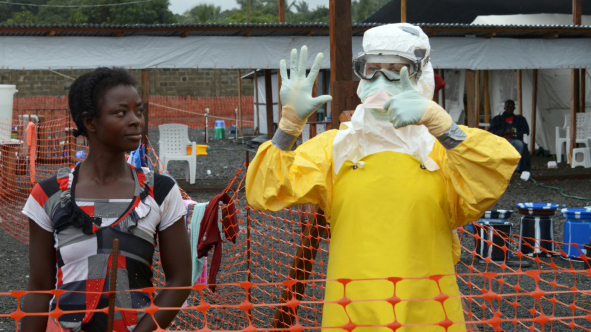Ebola spreading ‘exponentially’ as medics close in on cure
The World Health Organisation warn the Ebola virus is spreading fast in Liberia, as scientists move one step closer to finding a working vaccine after a drug protected monkeys for 10 months.

The WHO said that thousands of cases were expected in Liberia in the next three weeks, where they warned the virus was spreading exponentially.
In a statement, the WHO said motorbike-taxis and regular taxis are a “hot source of potential virus transmission” in Liberia where conventional Ebola control interventions “are not having an adequate impact”.
Meanwhile, results of drug tests on monkeys raise hopes that a vaccine could be found to help resolve the Ebola crisis in West Africa. Human trials on the experimental jab started in the US last week and are due to begin in the UK and Africa.
The new study found that the vaccine work on the monkeys for five weeks, but after that, the protection begins to wane. Researchers tried injecting a booster jab and found that this extended protection to 10 months.
“After the boost, protection is not only stronger but also longer-lasting,” said Daniel De Schryver, a spokesperson for one of the drug companies testing the vaccine.
Human trials are currently using one vaccine, but there are plans to test booster jabs as well.
Lockdown
According to the World Health Organisation, more than 2,000 people have been killed and more than 4,000 infected by the virus since the outbreak in March.
The Ebola outbreak was first identified in Guinea in March and has since spread across Liberia and Sierra Leone. Later this month the authorities in Sierra Leone are ordering people to stay inside their homes for three days to help stop the spread of the disease.
US President Barack Obama said at the weekend that America would offer more help to help control the outbreak. He said: “If we don’t make that effort now, and this spreads not just through Africa but other parts of the world, there’s the prospect then that the virus mutates.
“It becomes more easily transmittable, And then it could be a serious danger to the United States”, he added.
The United Nations says more than $600 million in supplies are needed in West Africa.